Nagroda przyznawana przez gazetę The Independent dla książek tłumaczonych z języków obcych na angielski i wydanych w danym roku w Wielkiej Brytanii interesuje mnie co roku, jako że wśród zwycięzców i finalistów z ubiegłych lat znalazło się kilka książek, które bardzo mi się podobały (choćby "Kradnąc konie"). Właśnie ogłoszono listę tegorocznych nominowanych – część tytułów jest obecna też na polskim rynku.
Saša Stanišić "Jak żołnierz gramofon reperował"
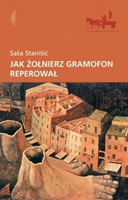
Tragikomiczna powieść o upadku Bośni i o niemieckim wygnaniu, o ojczyźnie i życiu w obcym kraju. Alexandar dorasta w małej wiosce w Bośni. Ma wielki talent do opowiadania, który odziedziczył po swoim dziadku. Talent ten ubarwia jego życie, zjednuje przyjaciół, ale też budzi niechęć choćby wśród nauczycieli, którzy woleliby, by pisał wypracowania na zadany temat. Ale czy powinien? Historie o zbieraniu śliwek u dziadka, czy o przygodach podczas wycieczek z pionierami są o wiele ciekawsze.
Niestety, w jego świat wkracza wojna i Alexandar wraz z rodzicami musi uciekać na Zachód. Na wygnaniu jego zamiłowanie do snucia niezwykłych historii okazuje się drogą do obłaskawienia nowej rzeczywistości. Dzięki niemu Alexandar może złagodzić niepokój i przywrócić czas, "kiedy wszystko było dobrze". Żywa, bogata wyobraźnia ułatwia mu również zachowanie pamięci o swojej ojczyźnie w dziwnym niemieckim kraju.
Alexander Ahndoril "Reżyser"
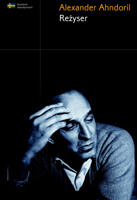
Błyskotliwy, głęboki, niekiedy surrealistyczny portret artysty, który zaciera granicę między rzeczywistością a fikcją, oszukuje się, by dotrzeć do prawdy, i w końcu, tworząc swój najbardziej osobisty film, odzyskuje utraconą więź z ojcem. Chociaż Ingmar Bergman stanowczo odciął się od swojego wizerunku zawartego w powieści, jej sukces w Szwecji i w całej Europie świadczy o trafności wizji Aleksandra Ahndorila.
Celine Curiol "Głos bez echa"

ONA jest młoda, mieszka i pracuje w Paryżu na Gare du Nord. Zapowiada odjazdy i przyjazdy pociągów oraz ogłasza komunikaty. Po pracy wraca do pustego mieszkania i całymi wieczorami czeka na telefon od człowieka, w którym jest zakochana. Ile jednak można czekać? Czasem wędruje ulicami Paryża w poszukiwaniu mężczyzny swojego życia, którego pokocha i przez którego będzie kochana. Choć to drugie wydaje się mniej ważne.
György Dragomán "Biały król"
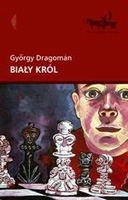
Opowieść o dorastaniu w kadarowskich Węgrzech dwunastoletniego chłopca stała się pretekstem do pokazania komunistycznej opresji w jej najpaskudniejszej wersji – pozbawiania ludzi ich godności. To historia o nieobecności ojca uwięzionego w obozie pracy, o codziennym upokarzaniu przez esbecję, o przemocy akceptowanej przez upodlone społeczeństwo oraz lęku przeplatanym nadzieją.
Thomas Glavinic "Za sprawą nocy"
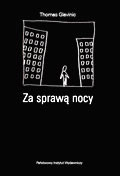
Jak żyć w świecie, z którego przez noc zniknęło wszelkie życie? W świecie, w którym jest się życiem jedynym?
Trzydziestokilkuletni Wiedeńczyk któregoś ranka nie znajduje na wycieraczce codziennej gazety, z radia dobiega tylko szum, ekran telewizora pozostaje pusty, internet nie działa, dziewczyna nie odpowiada na SMS-y, ojciec nie podnosi słuchawki telefonu. Na ulicy, o tej porze zwykle wypełnionej zgiełkiem, zupełna cisza: ani śladu pojazdów, a także ludzi. Nie słychać nawet ptaków…
Dzień mija Jonaszowi na poszukiwaniu choćby najmniejszych przejawów życia. Bez rezultatu. Miasto jest całkowicie wymarłe. Puste. Nieruchome. Co mogło się wydarzyć tej nocy? Jaka tajemnicza siła spowodowała, że ludzie nagle zniknęli bez śladu? Gdzie się podziali? I dlaczego on jeden ocalał z tej katastrofy?
Ismail Kadare "The Siege"

The Ottoman Army – the powerful the world had known by that time – lays siege to a Christian fortress in the mountains of Albania. Above the colourful host looms the great dark wall of the citadel that has to be overcome. This is a narrative of a bloody, complex struggle that ends in defeat and desolation for both sides.
Ma Jian "Beijing Coma"

May 1989. Tens of thousands of students are camped out in Beijing’s Tiananmen Square. One of them, Dai Wei, argues with about everything from democracy to the distribution of food to protestors, little knowing that, on 4 June, a soldier will shoot a bullet into his head, sending him into a coma. This book chronicles the lead-up to his shooting.
Eshkol Nevo "Homesick"

This heart-warming, charming and clever first novel dips into the lives of each of the inhabitants of a village in Israel. It offers us windows into the characters’ lives. Each comes from somewhere different but we gradually see that there’s much about them that’s the same. Homesick is a beautiful and moving story about history, love, family and the true meaning of home.
Yoko Ogawa "The Diving Pool"
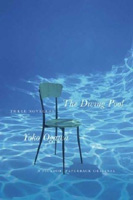 <
/p>
<
/p>
From Akutagawa Prize – winning author Yoko Ogawa comes a trio of novellas about love, motherhood, fertility, obsession, and how even the most innocent gestures contain a hairline crack of cruel intent. A lonely teenaged girl falls in love with her foster brother as she watches him leap from a high diving board into a pool–a peculiar infatuation that sends unexpected ripples through her life. A young woman records the daily moods of her pregnant sister in a diary, taking meticulous note of a pregnancy which may or may not be a hallucination–but whose hallucination is it, hers or her sister’s? A woman nostalgically visits her old college dormitory on the outskirts of Tokyo, a boarding house run by a mysterious triple amputee with one leg. Hauntingly spare, beautiful, and twisted, The Diving Pool is a disquieting and at times darkly humorous collection of novellas about normal people who suddenly discover their own dark possibilities.
Evelio Rosero "The Armies"
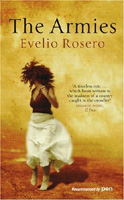
Ismael is a retired school teacher in a small Colombian village. He gathers oranges, admires beautiful women and has an idyllic everyday life. When the village is ransacked by an anonymous army, he is thrown into the fray and his mental stability collapses. The tragedy which engulfs the inhabitants of this village has indeed become an everyday occurrence in this country. People are kidnapped; killed; they disappear at the hands of unidentified groups such as the armies of the title: Guerillas, Paramilitaries, narcotics traffickers. Instead of describing the reality of an unpredictable violent world, Rosero imitates it – with the dense, confused prose of a man going mad. Instead of portraying violence, he has created a violent novel. In this story, no-one is spared, no one is protected.
Sjon "The Blue Fox"
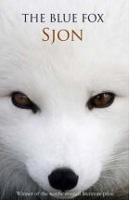
The year is 1883. The stark Icelandic winter landscape is the backdrop. We follow the priest, Skugga-Baldur, on his hunt for the enigmatic blue fox. We’re then transported to the world of the naturalist Friethrik B. Friethriksson and his charge, Abba, who suffers from Down’s syndrome, and who came to his rescue when he was on the verge of disaster. Then to a shipwreck off the Icelandic coast in the spring of 1868. The fates of Friethrik, Abba and Baldur are intrinsically bound and unravelled in this spellbinding book that is part thriller, part fairy tale.
Dag Solstad "Novel 11, Book 18"
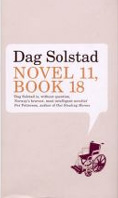
Bjorn Hansen, a respectable town treasurer, has just turned fifty and is horrified by the thought that chance has ruled his life. Eighteen years ago he left his wife and their two-year-old son for his mistress, who persuaded him to start afresh in a small, provincial town and to dabble in amateur dramatics. In time that relationship also faded, and after four years of living alone Bjorn contemplates an extraordinary course of action that will change his life for ever. He finds a fellow conspirator in Dr Schiotz, who has a secret of his own and offers to help Bjorn carry his preposterous and dangerous plan through to its logical conclusion. However, the sudden reappearance of his son both fills Bjorn with new hope and complicates matters. The desire to gamble with his comfortable existence proves irresistible, however, taking him to Vilnius in Lithuania, where very soon he cannot tell whether he’s tangled up in a game or reality. "Novel 11, Book 18" is an uncompromising and concentrated existential novel that accommodates all of Dag Solstad’s fundamental themes, and for which he received the Norwegian Critics’ Prize for Literature for the second time.
Juan Gabriel Vasquez "The Informers"
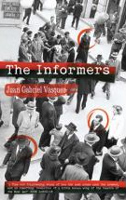
A fine and frightening study of how the past preys upon the present, and an absorbing revelation of a little-known wing of the theatre of the Nazi war.
AB Yehoshua "Friendly Fire"
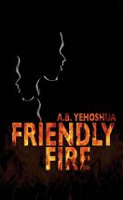
A long-married couple are spending an unaccustomed week apart. The wife has flown to East Africa to grieve the death of her sister with her brother-in-law, who had suffered worse heartbreak years earlier. The husband, a familiar Yehoshua character, stays behind in Israel for his busy lift engineering consultancy, and his large demanding family. The chapters alternate between husband and wife, creating a complex web of family relations, memories and discoveries, with death looming large over all.
Jose Eduardo Agualusa "My Father’s Wives"
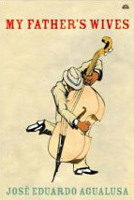
Upon his death the Angolan composer Faustino Manso left seven widows and eighteen children. His youngest daughter, Laurentina, a filmmaker, tries to reconstruct the late musician’s turbulent life.
Linn Ullmann "A Blessed Child"
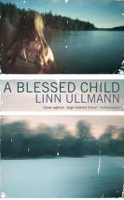
Every summer Isak Lövenstad gathers his three daughters by different wives to the windswept Baltic island of Hammarsö. Here Erika, Laura, and Molly know, if only for the season, what it is to be a family, and here, in the society of children, each undergoes the rites of growing up. Though many alliances form and dissolve, none compares to Erika’s bond with the rebellious misfit Ragnar, the intensity of which makes them inseparable. But when they reach the age of fourteen and their relationship threatens to relegate Erika to Ragnar’s outcast state, she suddenly turns away—a common enough teenage betrayal that nonetheless precipitates an incident of such senseless cruelty as to forever alter Isak’s family. Twenty-five years later, returning to Hammarsö to see their father—now eighty, a bereaved widower, and in year-round exile there—the three women confront, finally, the specter of that awful summer, the mark of which each has since carried.
Dużo tego… Kilka tytułów wygląda bardzo zachęcająco, zwłaszcza, że czytałam już całkiem pozytywne recenzje. Lista sześciu finalistów na początku kwietnia.

No Comments